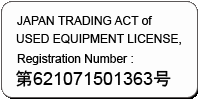NEWS : Yen seen calmly marching lower against dollar
October 25, 2016 TOKYO -- Many Japanese exporters are expected to downgrade their earnings projections for the current year through March when they announce interim results shortly, but it is unlikely to make as much impact on the yen-dollar rate as expected earlier.
.
The reporting season for April-June business results is just about to get into full swing. Exporters likely will revise their assumed exchange rates for the full year when they announce interim results to reflect the yen's appreciation.
.
The dollar changed hands at around 104 yen in Tokyo Monday, about 4 yen weaker than the level in the latter half of September. The Bank of Japan's Tankan quarterly business sentiment survey, released Oct. 3, shows the assumed exchange rates for the current fiscal year among large manufacturers, which consist largely of exporters, at 107.92 yen to the dollar on average. While that amount is not as conservative as 102 yen or 105 yen at leading automakers, the gap with the actual exchange rate shrank from nearly 8 yen to about 4 yen over the month.
.
A stock market rout sparked by downward earnings revisions could send investors into risk-avoidance mode. This could, in turn, result in a stronger yen by prompting them to buy the Japanese currency, which has been traditionally seen as a safe-haven asset. But the prospect of this scenario playing out now seems slim, according to Koji Fukaya of FPG Securities.
.
"Amid the yen's appreciation earlier this year, the market has already factored in to a certain degree the likelihood of exporters revising their full-year earnings forecasts lower," said Fukaya. "Helped by the yen's fall against the dollar in recent weeks, the Japanese stock market will be able to avoid a situation where selling of export-related stocks sharply drags down share prices overall," he added.
.
Not everyone is so optimistic. "Although the gap between exporters' assumed exchange rates and the actual exchange rates has narrowed, the difference is still too large to be ignored," warned Ayako Sera at Sumitomo Mitsui Trust Bank.
.
If the Japanese stock market is able to ride out exporters' earnings guidance downgrades without sustaining much damage, however, many believe that will pave the way for further weakening of the yen. How big this move will be will likely be influenced by the outcome of the U.S. presidential election on Nov. 8.
.
If Hilary Clinton comes out the winner, the confirmation that Donald Trump won't be the next U.S. president is expected to make currency traders more comfortable buying the greenback. Many market players also believe a Clinton election victory will make it a virtual certainty that the Federal Open Market Committee will raise interest rates in a December meeting.
.
Such developments will create a trend that will "send the yen lower to the range from 105 to 110 to the dollar over the long term," Fukaya predicts.
.
Yuji Saito at Credit Agricole Corporate & Investment Bank sees 110 yen to the dollar as a real possibility if Prime Minister Shinzo Abe calls a lower house election early next year and wins. "If the ruling coalition is victorious in the next lower house election, which many believe could happen soon after the New Year holiday, expectations of a long-term reign by Prime Minister Abe may prompt investors to channel new money into Japanese stocks," Saito contends.
.
MAKOTO NAKANISHI, Nikkei staff writer
2016-10-24 18:17:08
View All News






